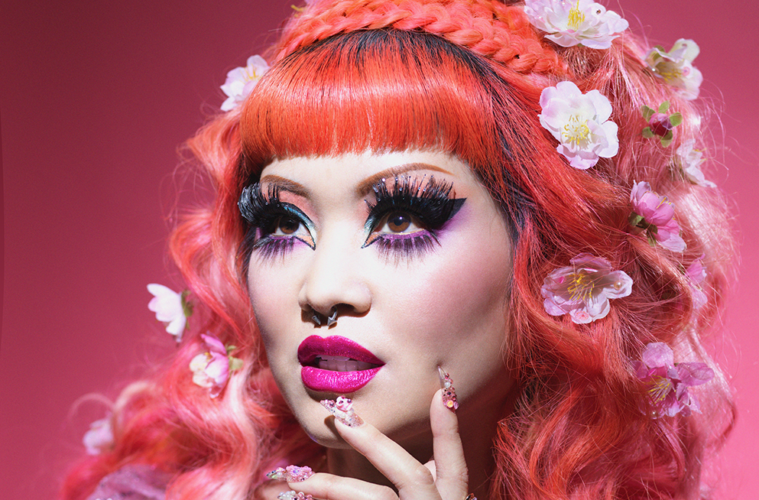Asian-American businesses make up some of the most popular sectors in the $300+ billion beauty industry and their influence deserves acknowledgement, not only for setting trends in terms of self care, artistry, aesthetic and social media, but for incorporating inclusivity in a way that’s grown organically and has universal appeal. May is Asian American Pacific Islander (AAPI) Heritage Month, and now more than ever, we need to celebrate these important cultures and their contributions to our way of life in the U.S.
Here, we spotlight our favorite Asian-owned cosmetic brands based in Los Angeles, and hear from some of the personalities and entrepreneurs behind them about what motivates them, how to counter AAPI hate, and how they each amplify Asian voices (and faces) while making the world a more beautiful place.
Sweet Faces
Makeup maven Amy Doan is a first-generation Vietnamese-American, the daughter of parents who fled Vietnam in 1975 during the war and met in a refugee camp. She has always been attracted to the brighter side of life, but she rarely saw herself reflected.
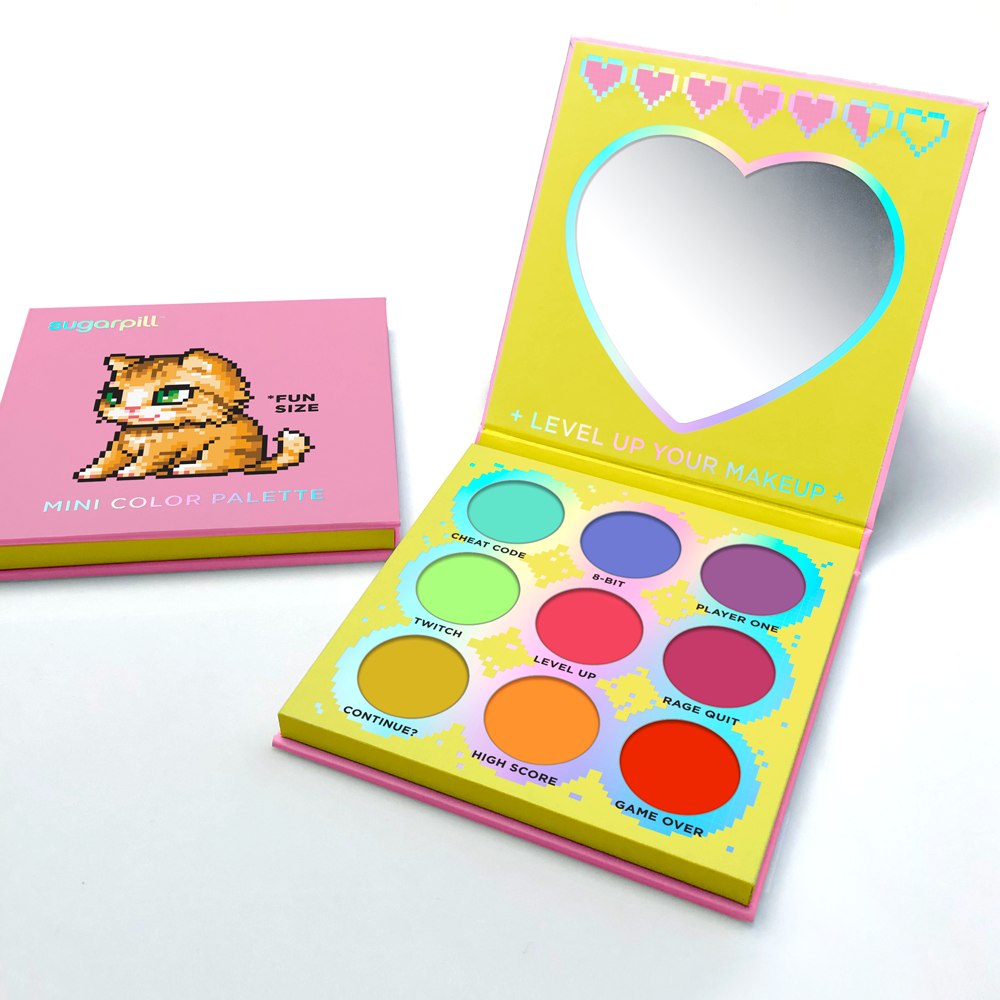
(Courtesy Sugarpill Cosmetics)
“Growing up in the ‘80s and ‘90s, Asian faces were virtually nonexistent in the American fashion, beauty, and pop culture I consumed,” Doan tells L.A. Weekly of her adolescence. “In the rare instance I did see an Asian face in a fashion magazine or on a TV show, she was always in the background wearing the least appealing outfit with unflattering makeup that did nothing for her features. The lack of representation made it difficult for me to imagine or believe that I could ever be beautiful. I coveted my Caucasian schoolmates for their wavy blonde hair and big blue eyes. I had no idea how to apply makeup on my Asian features or style my bone-straight Asian hair.”
When she started Sugarpill Cosmetics, one of Doan’s goals was to celebrate Asian beauty and create the visibility and representation that was sorely lacking in her developmental years. “I wanted to normalize seeing Asian faces in beauty campaigns in a way that was not fetishized or tokenized,” she says. “I wanted to pull Asians out of their sidekick roles in the background and into the spotlight.”
Bringing her personal style into the light using social media, Doan first started making clothing with her line called Shrinkle (now her nickname), featuring cute handmade pieces and reconstructed thrift store frocks like slip dresses dyed with super bright colors and whimsical heart and polka dot patterned pieces embellished with lace and fishnet. “I took photos of myself in my designs with theatrical makeup I picked up from performers in the underground drag bars I frequented,” she recalls. “Every time I posted pics, I received so many inquiries about my makeup. When I realized there was a huge demand for bright makeup in the club scene, I decided to make it accessible to my fellow internet friends by offering it alongside my clothing.”
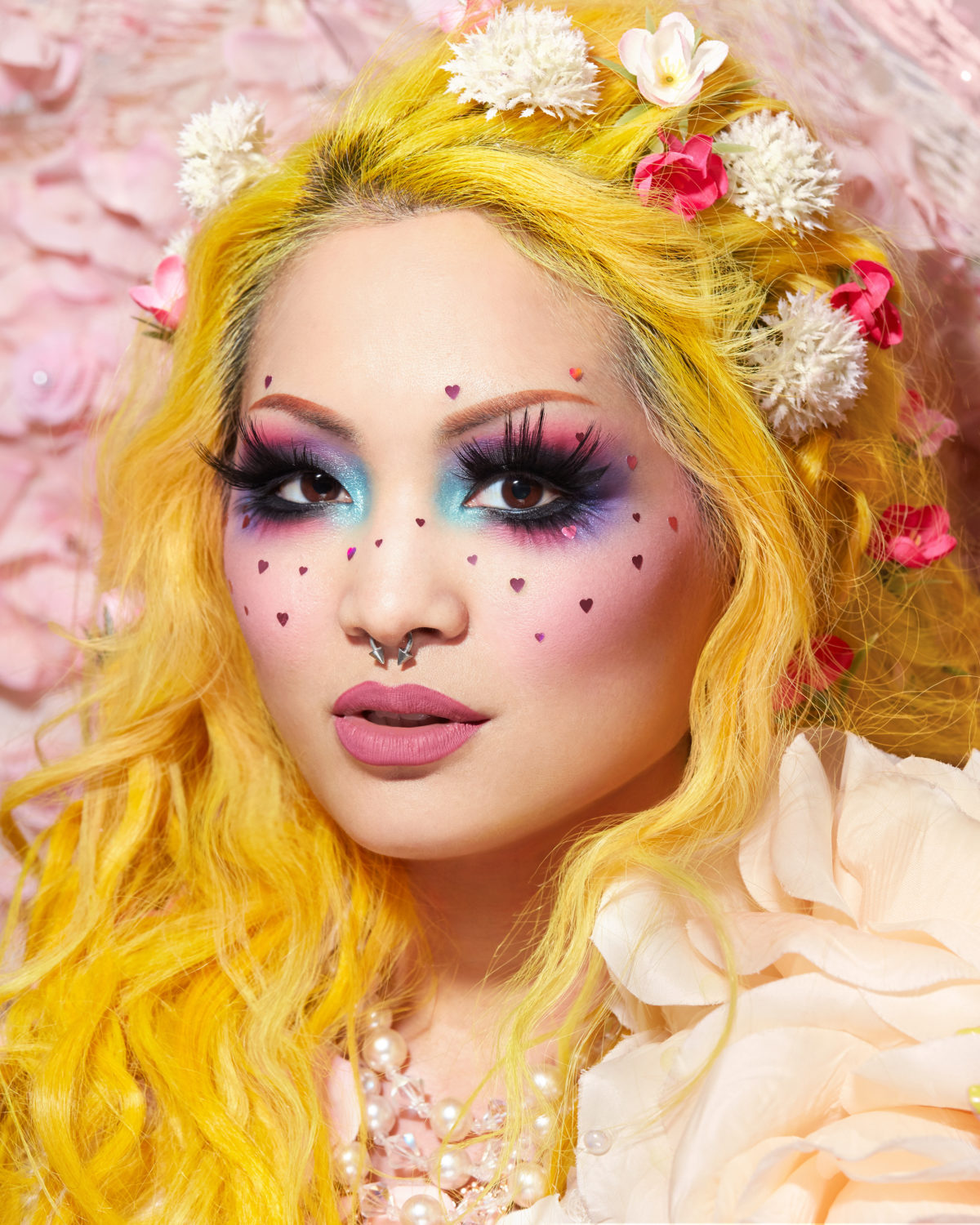
Amy Doan (Courtesy Sugarpill Cosmetics)
Doan soon went from selling her best kept secret beauty brands, to wanting to manufacture her own. “I always wished I had control over the makeup’s quality, brand image, and the products and colors offered, so in 2005 I began working on my own line of super bright eyeshadows in my dream formulas, shades, and packaging,” Doan explains. Five yer later, in 2010, Sugarpill was born.
The Los Angeles-based company was one of the first to offer cruelty-free, club kid, drag and Gothic Lolita style makeup and it quickly became a favorite among the queen scene, thanks to Rupaul’s Drag Race contestants like Katya, Trixie Mattel and Kim Chi touting it on Instagram. The makeup market has become particularly crowded as of late, but Sugarpill has created its own unique niche with cute capsule-inspired packaging and rich pigments and shades.
“I don’t really consider other brands my competition. I see them as friends and neighbors in a constantly growing community, and I’m always excited to see other brands thrive. I enjoy sharing tips and helping each other succeed,” Doan says of the market. “I think it’s important to know who you are and stay true to your vision. Don’t worry too much about following all the trends. It’s easy to lose yourself in the ‘Omg everyone is coming out with contour palettes this year, does that mean I should too?!’ but I’m proud that Sugarpill has always stayed consistent to our brand image and just making things that we totally love and stand behind.”
Happy Faces
As a fan of Sugarpill, Chi (whose real name is Sang-Young Shin) would often create looks with the brand and eventually collaborated with Doan on a doughnut-scented liquid lipstick. Sugarpill also named a matte blue eye shadow hue after the cartoony queen, who came to fame via season 8 of Drag Race and remained popular online thanks to great comic timing and wild Anime-style makeup application.
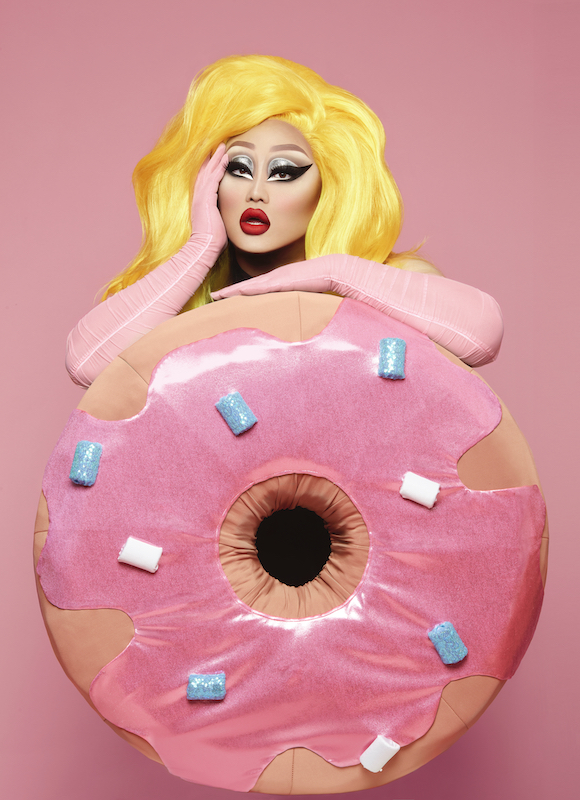
Kim Chi (Courtesy Kim Chi Chic)
Chi, who is Korean-American, brings a similar feminine but freaky zest to her own line, Kim Chi Chic Beauty, launched in 2019. With wacky product names like Diamond Sharts (glitter eye gel) and Puff Puff Pass (face powder), Chi’s line is definitely one of a kind. “Whether you’re looking to paint your face in a complete clown mug or barely there soft neutral face, we’ve got you covered,” Chi says of her brand. “All of my palettes are fabulous. The concealers are amazing, the high key gloss is so pigmented and does not feel sticky.”
In terms of product versatility, Chi and Doan both focus on brighter schemed lips and eyes, but Chi also offers blendable concealers and powders customers can customize in a myriad of ways. “We take the variety of skin tones and range into consideration,” Chi adds, echoing Doan’s desire to see faces like hers in various media. “Representation is so important. Growing up I never saw myself in any of the characters in movies and TV shows and thanks to a lot of consideration for diversity nowadays, all of that is slowly changing.”Chi’s line was the first partnership for Bespoke Beauty Brands owned by Toni Ko, the L.A.-based Korean-American businesswoman who is best known for founding NYX Cosmetics in 1999, after her mother gave her $250,000 in startup money. The company earned $4 million in its first year and Ko sold it to Loreal in 2014 for $500 million.
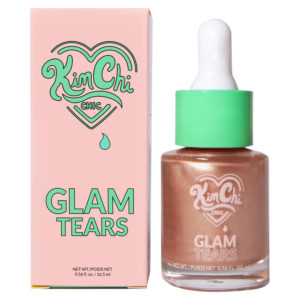
(Courtesy Kim Chi Chic)
Ko is considered a legend in the cosmetics world and along with Jason Wu Beauty (also part of the BBB family) her umbrella brands continue to break barriers for Asian entrepreneurs. “More than ever, with the recent rise in anti-Asian harassment and violence, BBB understands the importance of being a committed ally and helping to work towards amplifying the voices of Asian Americans and Pacific Islander Americans,” Ko’s company states via press release about its current initiatives.
To honor AAPI Heritage Month, BBB, as represented by Chi and Wu, are recognizing the contributions and influence of Asian Americans and Pacific Islander Americans by partnering with NAPAWF for the month of May, donating 10% of proceeds from Wu’s brow products and Chi’s lip products. The organization works to help elevate AAPI women and girls by creating social, political, and economic change in the United States with mobilization efforts in over 14 cities across the country.
Diverse Faces
“I am incredibly proud of my Asian heritage and as a team made up of mostly AAPI community members, I am extremely proud of how far we have come,” shares Wu, who first made a name for himself in fashion (dresses for Michelle Obama) and fragrance. “In order for us to build a better, more accepting world for the next generation, we have to start by telling our stories. I think it is more important now than ever that we stand up as a community to fight stigma.”
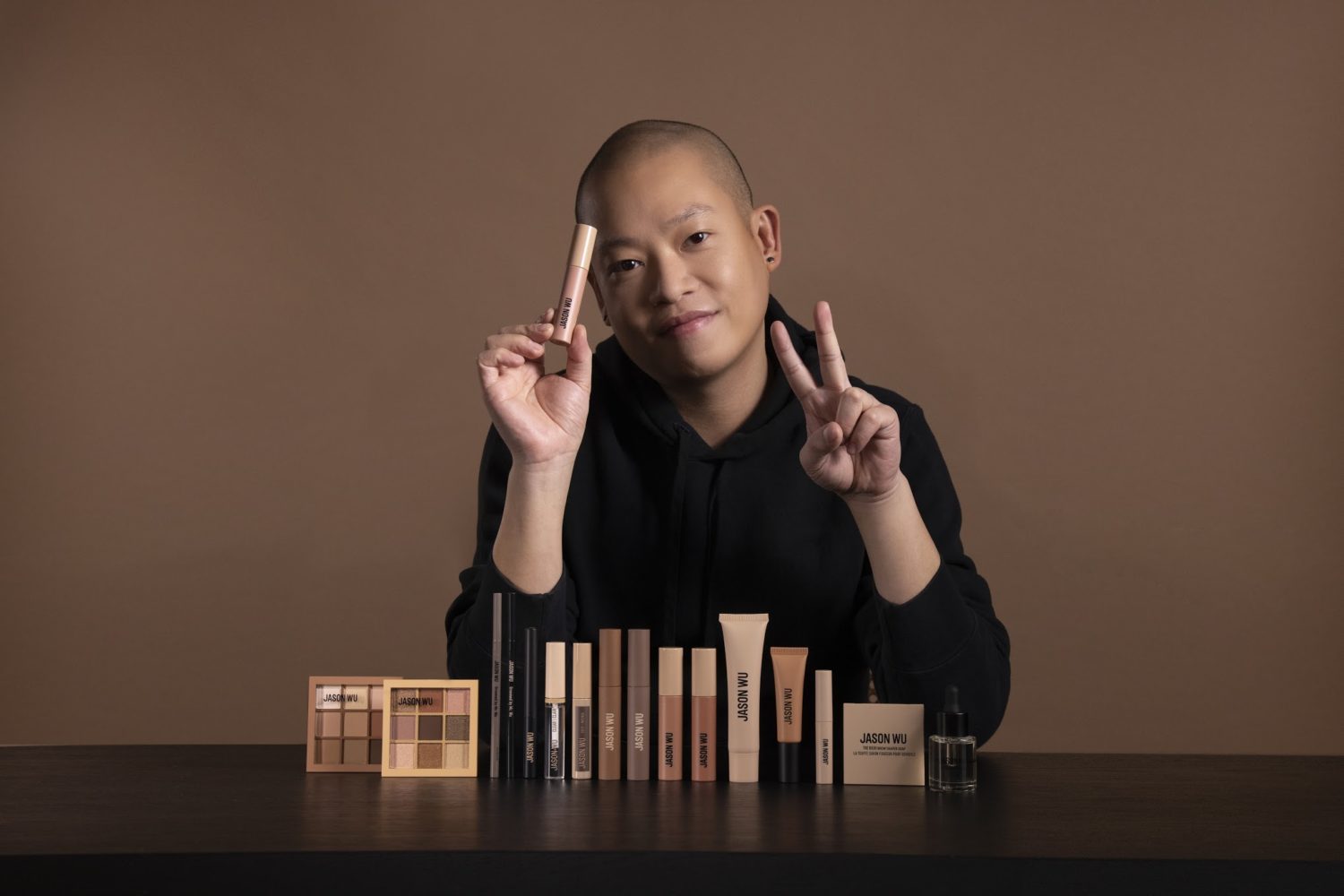
Jason Wu and his wares. (Courtesy Jason Wu Beauty)
“My international background has definitely been a huge inspiration not only for many collections, but for my overall aesthetic as well,” Wu, who was born in Taiwan, continues. “I think that a cross-cultural approach to fashion, art and architecture is really important, although I don’t always want to be too literal. However, my Asian heritage does play a huge role in my sensibility.”
Wu says he launched his company because, “I am literally obsessed with beauty. When I launched my first fragrance, I had in my mind this dream to create Jason Wu Beauty as an exclamation point to everything that I love,” he explains. “It is thrilling to imagine the Jason Wu woman being able to find products that speak to her desire for products that are considered of the highest quality and complement the refined femininity in my clothes. These are hallmarks of my brand and I really wanted to explore what that could mean for her in the beauty space.”
Wu’s products are available at Target, and his rosy neutral colors and sumptuous formulas work well on a variety of ethnicities and looks. He says his “Honey Fluff lipstick and Hot Fluff lipstick – designed to also be used on the eyes and cheeks for a soft, monochromatic look,” are the must-have items from his current collection.
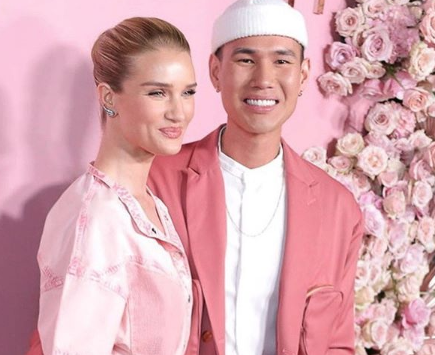
(Courtesy Patrick Ta Beauty)
Famous Faces
Patrick Ta, a first-generation Vietnamese-American beauty master, is also known for his creamy neutrals and glowy, shimmery face looks. The full-time makeup artist who’s worked with the likes of Olivia Munn, the Hadids and the Kardashians, has translated his client relationships into a hot brand that continually sells out of its products thanks to social media shares.
And speaking of social media, Nikita Dragun’s Dragun Beauty definitely benefited from its owner’s online presence and fanbase. We spoke with the influencer and creator for last month’s Transgender Visibility cover story and she also shared her vision as a half Latina/half-Asian beauty businesswoman.
“Obviously, the reason why I even started Dragun Beauty was because I felt like there was a lack of representation in the market,” Dragun explains. “I genuinely had needs that weren’t being addressed by the larger makeup companies. I took it upon myself to find my voice, to be an entrepreneur and start this business from the ground up. I think it’s all about being the architect of your own beauty and being an architect of your own brand.”
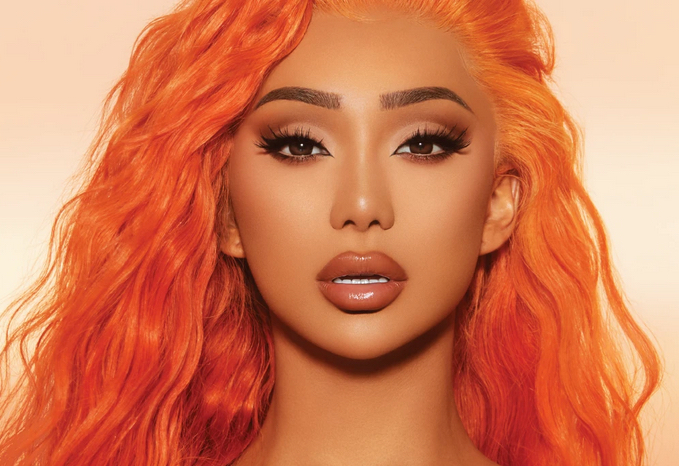
Nikita Dragun (Courtesy Dragun Beauty)
“We’re seeing such amazing entrepreneurs that can change the industry, people that normally wouldn’t have a voice,” Dragun adds, explaining how contemporary customer service and marketing includes social media. “We can communicate more, and they can say hey, we need to have more foundation shades, or whatever their concerns might be.”
While influencers and established artists are two different things, sometimes they can become one and the same, and often, products come as a natural progression of a public figure’s popularity. For those in beauty, it’s rarely a “slap-their-name-on-it” money grab because those involved really care about the looks they’re creating and what they represent. Bad quality is bad for one’s brand and with tutorials and product reviews all over the web, everyone is focused on creating the best products they can as they broaden their profiles.
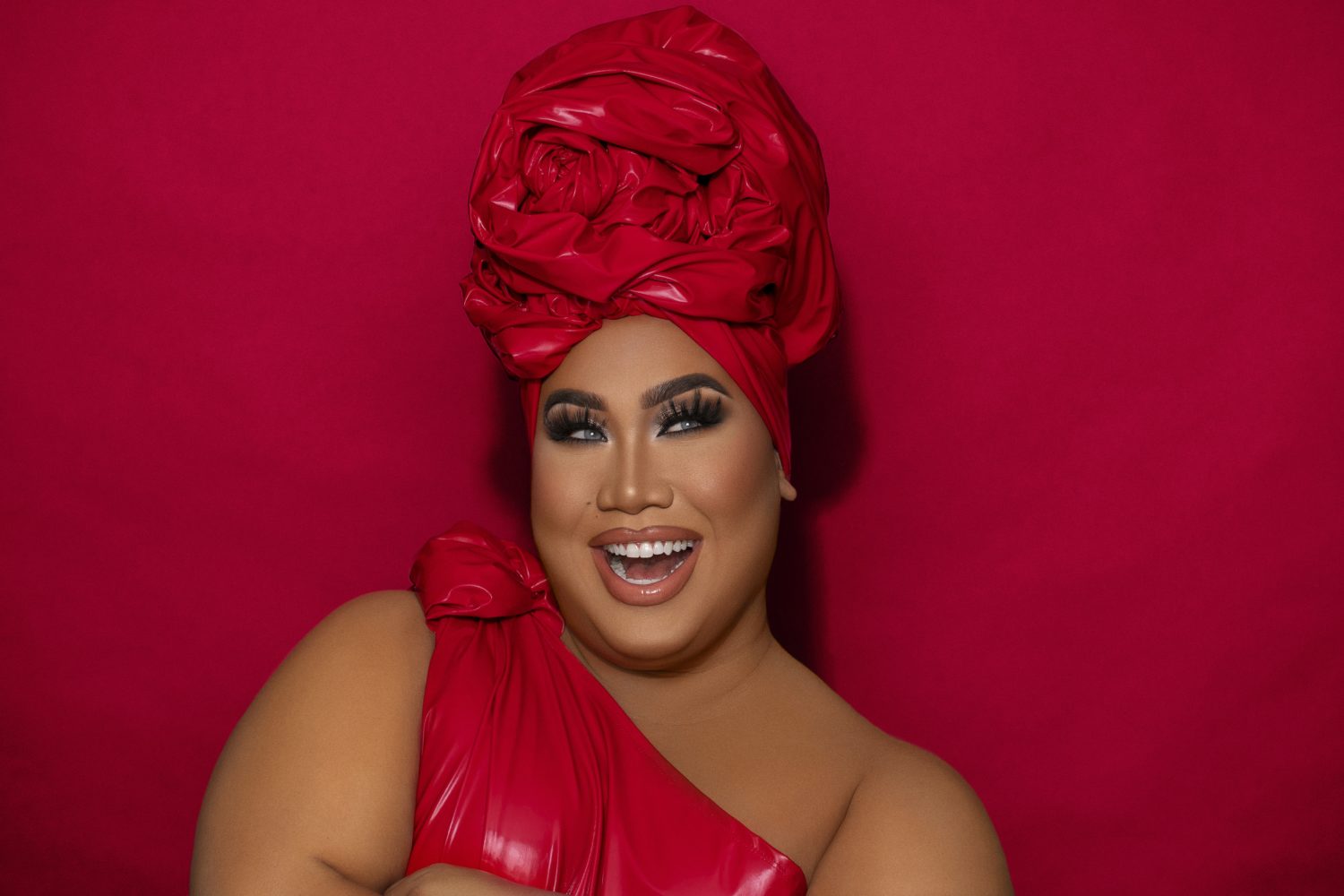
Patrick Starrr (Courtesy One/Size)
Patrick Starrr, for example, released his brand One/Size since finding fame online, and according to the website, he hopes to redefine beauty by “elevating the voices of the unheard” and “making space for everyone to belong to our movement for radical expression,” because as Starrr’s tagline touts, “makeup is a one/size fits all.”
“We are motivators, and we are a force in the advertising world now,” the Filipino-American social media darling declared in L.A. Weekly’s 2019 Influencer issue, conducted before he’d started his own full line, available by web and exclusively at Sephora stores. “We’re here to shake up the industry and maybe even help people to make decisions in their lives they never would have. We’re promoting change and we’re able to do it thanks to the digital age.”
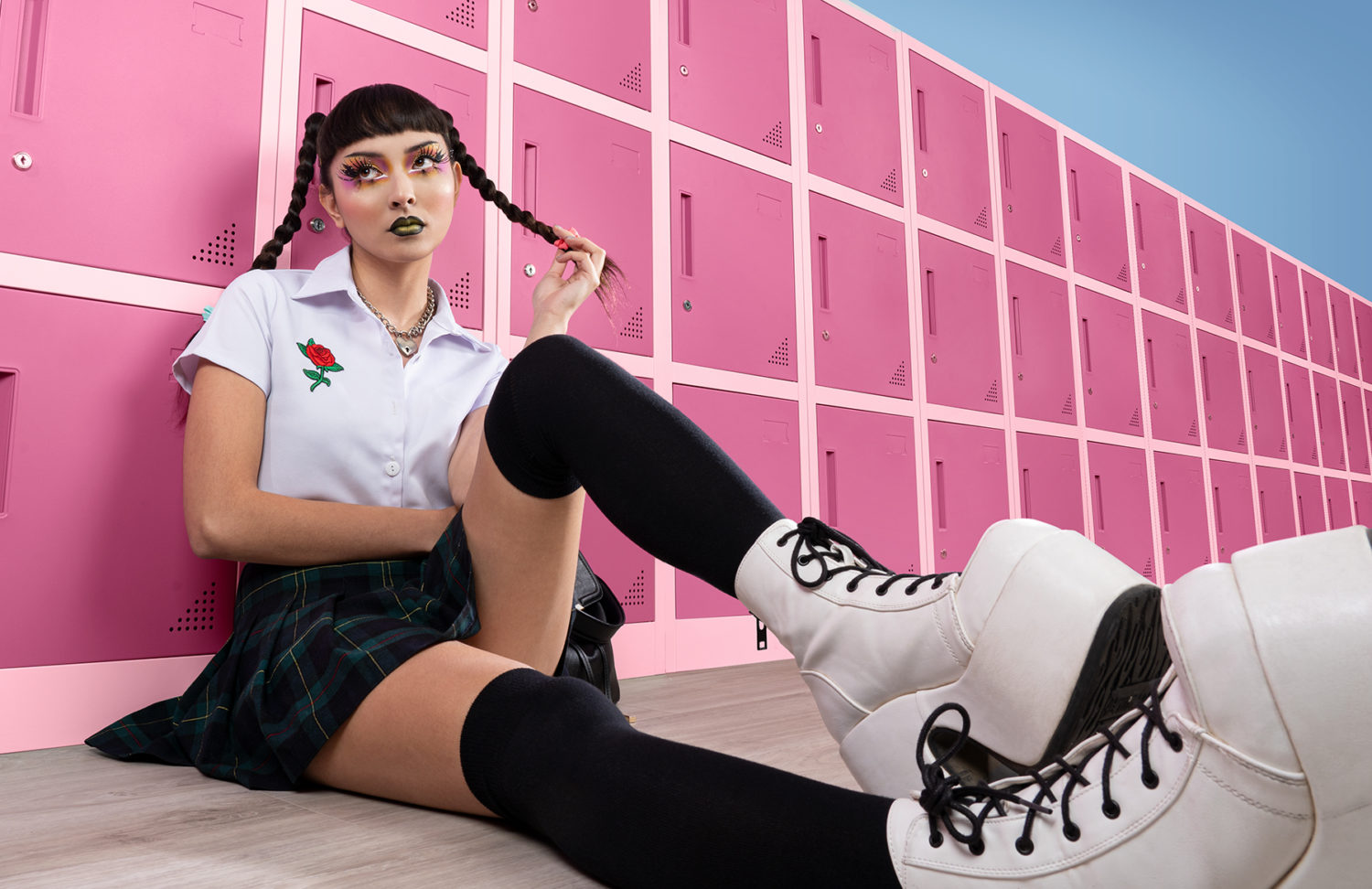
(Courtesy Sugarpill Cosmetics)
Asian Faces
From Jenn Chiba at House of Lashes (beloved for fabulous faux lash styles and accessories that compliment “any eye shape and makeup style”) to Lauren Jin of CLE Cosmetics (known for minimalist packaging and nourishing formulas), California bred brands led by AAPI creators offer some of the best and most unique beauty products out there. And we can’t neglect to mention Brentwood, CA-based Michelle Phan, founder of EM Cosmetics, and more significantly the gal who created IPSY – the popular beauty subscriber service that’s been sending out sample-filled makeup bags filled with a vast array of beauty brands (many included in this article) to the public since 2011.
Providing exposure for new brands to the masses and allowing beauty junkies to sample before they drop their money on pricey new products, IPSY quickly became a multimillion dollar business. Though Phan stepped down a few years ago to focus on her own brand EM, Ipsy has changed the face of the industry and with its recent purchase of a similar service called Boxy Charm (focused on full size products), its influence is not only solid, it seems to be a unifier in the industry, both literally (featuring a mixture of diverse brands bagged together each month for a nominal fee) and figuratively.
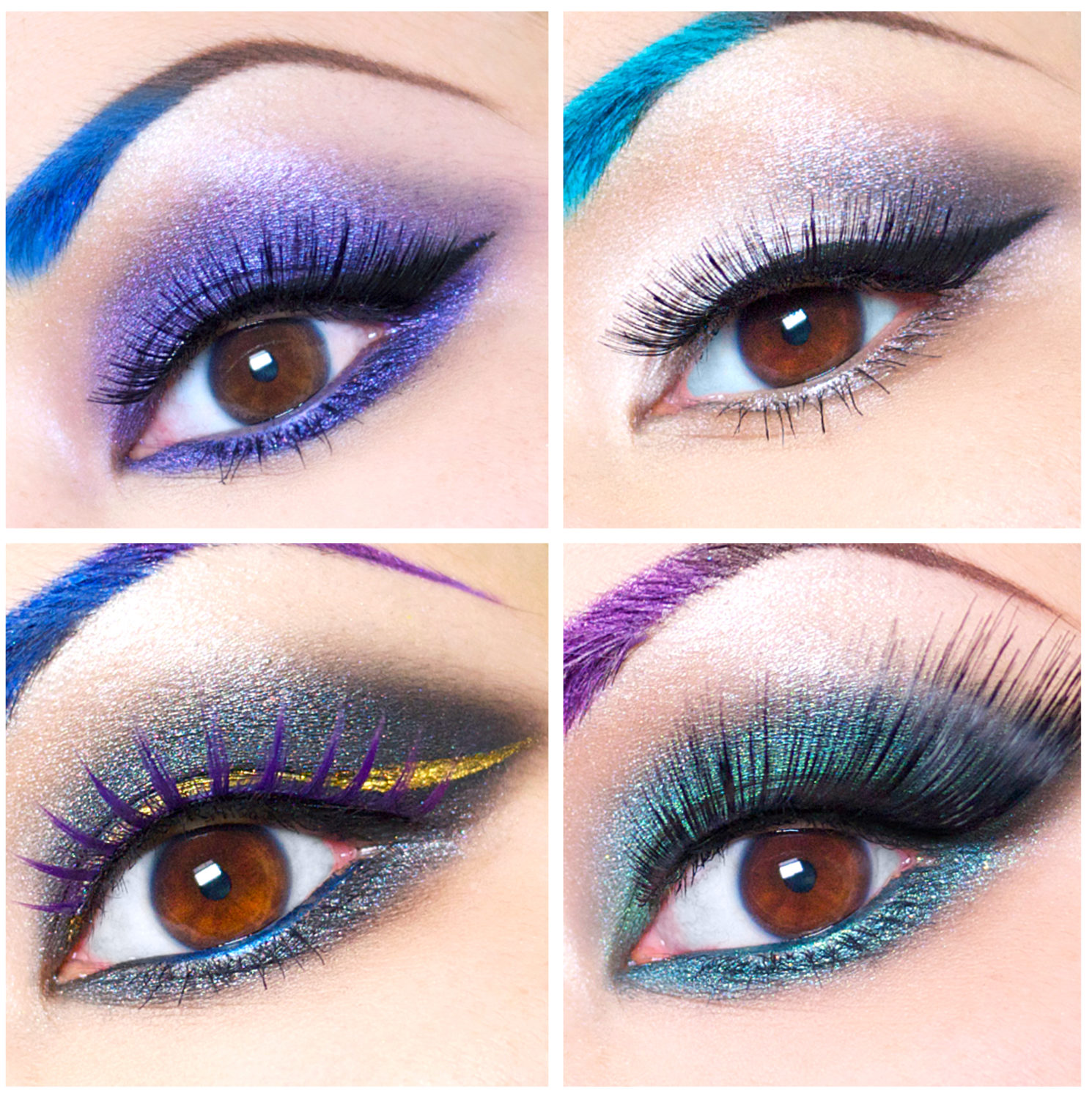
(Courtesy Sugarpill Cosmetics)
“I appreciate the attention Asian-owned brands are receiving this year, but it also makes me sad that all of this violence and tragedy had to take place for people to want to spotlight Asian brands,” Doan admits, referencing the recent increase of Asian hate post-COVID-19. “Our visibility should be a normal everyday thing, and not something that is only celebrated one month out of the year or when there are mass shootings and violence against the community. If you love a brand, their message, their products, support them year round.”
Chi concurs. “AAPI heritage month is important because it uplifts us and makes us proud to be who we are,” she adds. “But that’s also a sentiment we should be carrying all year round.”
The brands here are clearly working hard year round to achieve success. And while makeup isn’t serious or essential to some, for many, its power to transform and make us look and feel better has real meaning, all the more so when the business is started by someone from an underrepresented community or culture.
“I’m proud of the way I’ve used my platform to support and elevate Asian artists and small businesses over the last decade, and I’m so honored to have their love and support in return,” remarks Doan. “The older I get, the more pride I feel for my culture and heritage, and the more I realize how important it is for the community to stick together and help each other out.”
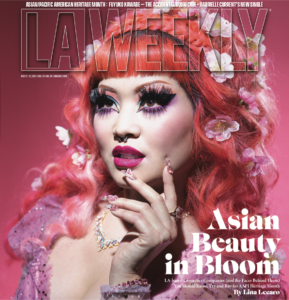
This week’s LA Weekly print edition spotlights AAPI Angelenos.
Advertising disclosure: We may receive compensation for some of the links in our stories. Thank you for supporting LA Weekly and our advertisers.

